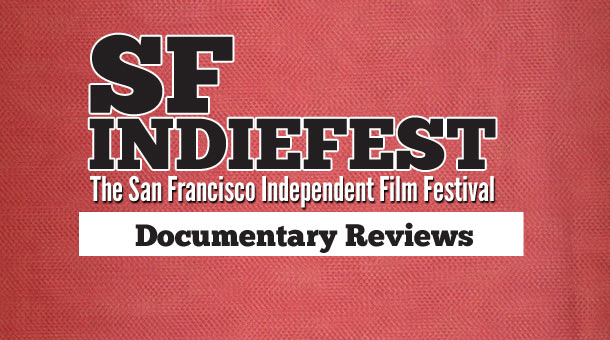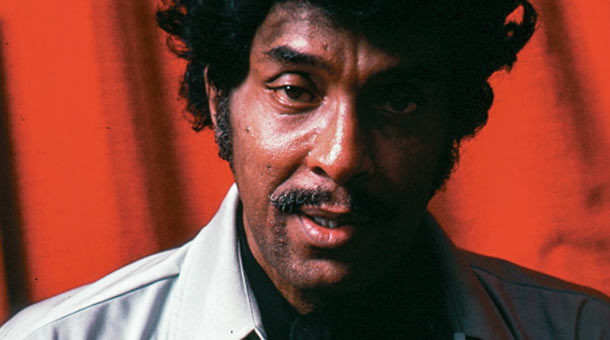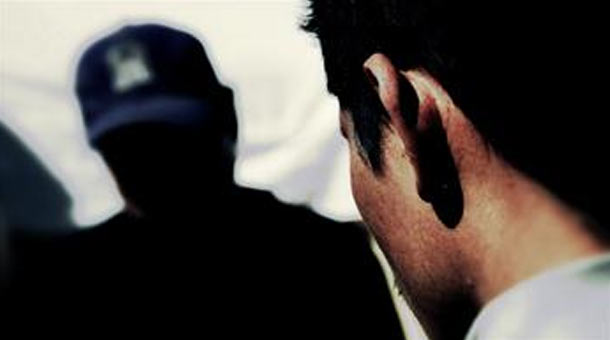SF IndieFest Documentary Reviews

Capsule reviews of several documentaries shown at the 2013 SF IndieFest.
The Life and Times of Paul the Psychic Octopus

In Weymouth, England, there was an octopus named Paul. He correctly ‘predicted’ eight straight games in the 2010 World Cup, an astonishing anomaly. All over the world, people viewed the simple cephalopod as everything from a mascot, to a prophet, to a genius, to a god. Paul became a veritable phenomenon, permeating the pop cultures of multiple countries. Some people loved him and traveled for miles to crowd around the tiny tank he called home. Others hated him (typically people whose national soccer team Paul predicted would lose.) Though Paul is not with us any longer, he’s the most famous octopus of all time, and his story is one of the most unique in the world.
The film, directed by Alexandre O. Phillipe, is a concise, well-polished, entertaining chronicle of the amazing life of Paul. As a documentary, it works well because it humanizes Paul, as the world did a few years ago, though it does take time to analyze the mind-blowing improbability of Paul’s ‘predictions’. The absurdity of the fact that the film includes an interview with a dead octopus’ publicist is irresistibly humorous and endearing. The film uses cartoons and playful editing to keep the mood light, and the film flies by, though mostly due to how fascinating and surprisingly heart-warming the subject matter is. Phillipe’s film doesn’t simply rattle off statistics and fun facts; it tells a story that is interesting in that it says more about us than it does the ‘psychic’ sea creature.
RATING: 8
Iceberg Slim: Portrait of a Pimp

Iceberg Slim (real name Robert Beck) was one of the greatest pimps of all time because he was uncompromising and emotionless (Iceberg), charming, and impeccably dressed (Slim). In black culture, there is no one more synonymous with the pimp game as Slim. Iceberg Slim: Portrait of a Pimp takes an in-depth look into the dark, troubling path Iceberg ventured down, from witnessing his mother manipulate men, forever altering his view on women, to becoming “street-poisoned” by the devilishly dangerous world of pimping, to becoming one of the most influential and heralded black authors of all time.
Interviews with Beck himself show just how intelligent and articulate he was, and make it clear why his work has been so influential for so many generations. It’s riveting to watch interviews with his daughters and ex wife (who do not get along, to say the least) cut together along with Slim’s admirers who revere him as a revolutionary; this ‘portrait’ is deep and complex. Director Jorge Hinojosa utilizes illustrations to aid in telling Slim’s story, and the colors and sounds Hinojosa chooses make you feel the culture Slim was birthed from, not just watch it.
The film illustrates what pimp life is like with complete and utter honesty and accuracy, detailing the ugly nature of the life, much like Slim’s famous books. It would have been nice to spend less time with the celebrities (most of them essentially say the same thing; that they love and are knowledgeable of the legend of Iceberg Slim) and more time with his family, who provide the most probing and personal insight. Nevertheless, it’s an incredibly illuminating film about the life of an enigmatic and legendary figure.
RATING: 8.5
Faceless

Faceless is an important movie in that it looks at the tragedy of September 11th, 2001 from a perspective not previously explored. We follow the journey of a Mexican man who leaves his family, crosses the US/Mexico border illegally, and takes a job as an undocumented worker in the United States, supporting his family from thousands of miles away. This journey is a commonality for Mexicans, but what is not so common is that this man worked in the World Trade Center, and was a victim of the tragic terrorist attacks. He was faceless; no ID, no social security number, no address. After the attacks, families mourned their lost loved ones, but this man’s family was faced with the burden of searching for their beloved father, who, in this country, didn’t exist.
The film presents interviews with people with wildly different vantage points to the tragedy: The man’s family, border patrol volunteers, a man who plants water bottles Johnny-Appleseed-style along the border for illegal immigrants to find, an immigrant from a different country, France, and more. The decision to present such incredibly diverse viewpoints of this starkly relevant story is one that pays off; the film is frighteningly sobering and thought-provoking. Unbelievably disturbing real-life footage captures the brutality and violence of the dangers of illegal immigration and the attacks themselves.
The film occasionally pauses to meditate on the frightening events with a reading of a somber poem set to beautifully staged imagery. Director Tristan Albrecht should be commended for being mindful of the weight of the subject matter while simultaneously being conscious of filmmaking and storytelling.
RATING: 8.9
Inside Lara Roxx

Director Mia Donovan presents the tumultuous process of documenting the titular Lara Roxx over the course of five years in Inside Lara Roxx. Lara, a Montreal native, was told that if she moved to Los Angeles and let people film her having sex, she could make thousands of dollars a week. Giving in to the allure of the almighty dollar, Lara traveled to LA and started working in the adult film industry. Within two weeks, she contracted HIV and became the subject of a media storm. After the storm died down, Donovan started filming.
Inside Lara Roxx takes the approach of simply placing Lara in front of us and inviting us to watch as she breaks down mentally, emotionally, and spiritually in the aftermath of her disastrous experience in the porn industry. Donovan shows footage Lara in different stages of mental and physical decay, and what results is a saddening, cautionary look into the dark side of the porn industry. Donovan isn’t a silent director throughout the film, and periodically we hear her have conversations with Lara. The scenes in which we witness the relationship between subject and director are the film’s best. What hurts the piece is that the structure is mostly shapeless, with nothing to tie Lara and Donovan’s story together. It’s just a string of footage and interviews that lacks cohesion. However, Donovan’s film is always intriguing and sheds light on an important issue.
RATING: 7
